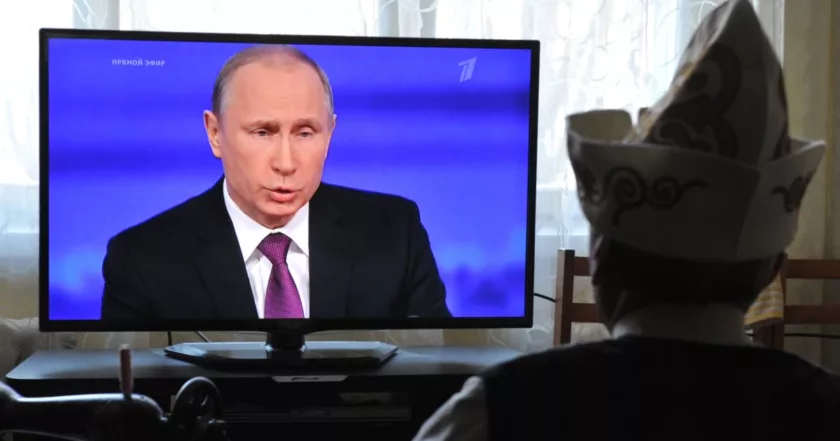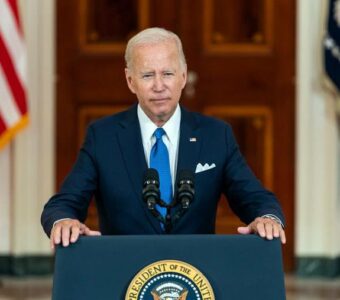putin is preparing for protracted war and plans to increase russia's defense spending by 43% — Bloomberg

russian dictator vladimir putin plans to spend far more on military needs over the next two years than originally planned as russia adjusts the budget to the needs of a longer and increasingly expensive war in Ukraine.
NV writes about this with reference to Bloomberg.
According to the three-year financial plan of the russian federation, which Bloomberg reviewed, defense spending will exceed the initial budget calculations for next year by more than 43%, and the corresponding categories of spending on national security and law enforcement will increase by more than 40%.
Budget projections are changing as priorities shift in favor of the military. Instead, funding for some areas, including environmental protection, is being cut, the media outlet writes.
Spending on "national defense" amounts to almost 5 trillion rubles ($84 billion), or 3.3% of GDP, ranking second in the share of spending in the russian budget. More expenditures in the russian federation are planned only for social programs.
According to the Stockholm International Peace Research Institute (SIPRI) estimates, the article "national defense" in the russian budget accounts for about three-quarters of all military expenditures. It includes the financing of operational costs, as well as the purchase of weapons.
Instead, funding for education and culture in 2023 will hardly increase, the document says. Spending on environmental protection will be about a quarter less than originally planned and will amount to 0.2% of GDP.
These changes reflect russia's growing tendency to continue the war it unleashed, which has already cost Ukraine and russia a huge price in bloodshed and lost resources, Bloomberg writes.
Serious setbacks on the battlefield forced putin to step up his efforts to restore positive momentum this week when he announced a "partial mobilization" to draft up to 300,000 reservists, the newspaper recalls.
In the budget plan for the conscription in 2023, expenses of almost 16 billion rubles are included, and in 2024-2025 – 16.5 billion rubles annually. Most other details of military spending remain classified, the publication notes.
According to SIPRI, which monitors the global arms industry, last year, russia was among the top five countries with the largest arms spending.
According to think tank estimates, the kremlin increased military spending by 2.9% to $65.9 billion in 2021, marking the third consecutive year of increased spending after falling in 2016-2019.
According to Bloomberg's forecast, the first round of mobilization will be a one-time blow to production volumes that will deepen the contraction of the russian economy this year to 3.75%. The main reason is the outflow of the labor force since the mobilization will probably cause a wave of its leakage outside the borders of the russian federation to safe places in neighboring countries. This is a repeat of the events of February 2022.
Redirecting resources and manpower to the military will deplete the russian economy, which is in recession, and the russian labor market is already suffering from poor demographics.
In addition, problems await the russian budget due to the aggravation of the confrontation regarding the supply of energy carriers by russia to Europe. According to the budget plan, in 2023-2025, annual pipeline gas exports will decrease by almost 40%, while crude oil supplies will increase slightly.
The government's balance sheet has weathered the crisis well, partly due to gains from rising commodity prices. However, cuts from the state welfare fund mean that it will decrease by more than 3 trillion rubles in two years.
The government will have to compensate for the increase in costs by raising taxes.
Among other changes, the budget will also allocate more money to "patriotic education" — a program that includes historical exhibitions and involves increased spending on equipping schools with state symbols.
The publication reminds that the government of the russian federation approved the budget plan last Thursday, and now the draft law must receive the support of both chambers of the parliament (State Duma of the russian federation) and be signed by the president. It may still be amended, but most points are unlikely to undergo major changes.
According to the latest forecasts, the russian budget deficit will increase next year to 2% of GDP from 0.9% in 2022. The government will mostly finance the deficit with debt and reserves. The plan also involves borrowing up to $1 billion annually in foreign currency.
In late June, russia defaulted on its foreign government bonds due to international sanctions that blocked payment channels to foreign creditors following the russian invasion of Ukraine on February 24, 2022.





















































